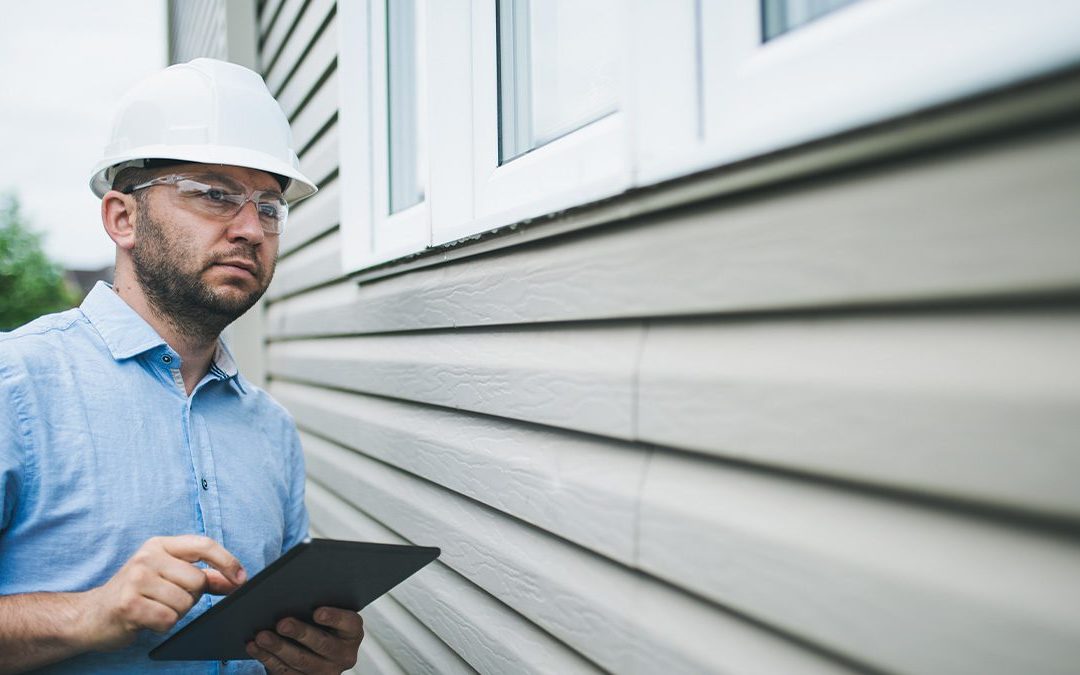Home Inspections Are You Getting the Right One?: Massachusetts Homebuyers Homeownership
Most homebuyers know that no matter how much they love a house, they should get it inspected before closing the deal. “It’s a lot like a mechanic looking under the hood,” says Scott Bergmann, an agent with Realty ONE Group Sterling in Omaha, NE. “It allows the buyer to understand the condition of aspects they may not be able to see in their initial walk through.” Homebuyers often add an inspection contingency to their offers, which lets you back out of the deal if a significant problem is revealed.
“An inspection contingency allows buyers to make a more informed decision whether to cancel a purchase or request repairs,” says Raj Midha, senior vice president and general manager at American Home Shield, a home warranty company. Even without an inspection contingency, adds Midha, an “inspection provides a better understanding of the current condition of the home and its systems and appliances, so that the buyer can adjust their offer accordingly or plan for future repairs.”
Given how an inspection can protect buyers from a lemon, it’s no surprise that most homebuyers get one done. However, do you know what type of home inspection you need?
A guide to types of home inspections
Most homebuyers expect that they’ll have a general home inspection. This is conducted by a licensed and certified inspector and will cover most aspects of the home including the structure, roof, appliances, heating and air conditioning, plumbing, and electrical systems. You can find an inspector through the American Society of Home Inspectors; a home inspection will cost anywhere from three hundred to five hundred dollars.
“Major issues could be expensive to remedy and drastically change the net total cost to the buyer, and therefore alter the budget they have available for the purchase,” says Joan Levinson, an agent with Realty ONE Group in Paradise Valley, AZ. “Even the minor items can add up.” Levinson recommends getting a seller’s property disclosure statement, which outlines any issues with the home, before the inspection. That should be shared with the inspector so those items can be checked.
From there, the general inspection will also reveal whether a specialized inspection is warranted to look at certain aspects more in depth. In fact, there are thirteen specialized home inspections you might need. These can protect you and your family from health hazards (radon and lead, to name two) as well as money pit situations you might otherwise miss. Here’s a rundown of the types, who should get them, and how much they cost.
1. Mold inspection
Most people cringe at the mere term, and for good reason. Mold presents some very real health risks, but it often goes unseen, Bergmann says. It typically occurs near the foundation or plumbing lines, and exposure to it could cause respiratory problems, rashes, or cold symptoms.
“I have a superlow threshold for ordering a professional mold inspector,” says Levinson. If there’s any hint of trouble, go for it. A mold inspection is usually done by mold remediation companies, and it typically includes a visual assessment and testing of both air and surface samples.
Cost: $300 to $1,000
2. Roof inspection
A roof is typically covered by a general home inspection. But if the inspector notes some visible wear and tear, an additional roof inspection by a roofing contractor is a smart move, Bergmann says.
It’s also a good idea to have one when a home is older or the roof is more than twenty years old. If a major roof repair or replacement is imminent, you sure want to see it coming because it can be a massive expense.
Cost: $120 to $315
___
Watch: Surprising Things Your Home Inspector Will Not Check
___
3. Lead-based paint inspection
For homes built before 1978, you’ll receive a “Lead Warning Statement” as part of the seller’s disclosure. This notifies you that the seller has complied with lead-based paint notification requirements. Be aware: This might reveal only that the seller doesn’t know if the home has lead based paint. When in doubt, know that you can inspect a home for lead based paint, according to the U.S. Environmental Protection Agency. Use the EPA’s online tool to find a certified inspector.
Cost: $225 to $419
4. Asbestos inspection
Until the late 1970s, certain items used to build homes including roofing, floor tiles, insulation, and pipes contained asbestos, a substance that has been linked to serious health issues, including some cancers. Federal law doesn’t require home sellers to disclose that the home contains asbestos, but many states do require disclosure, according to the EPA.
If you are on the verge of buying an older home and/or suspect the presence of asbestos, consider getting an inspection by a local asbestos abatement company.
Cost: $225 to $800
5. Radon inspection
Strange as it might sound, radon is a radioactive gas that occurs naturally and can seep into your home through the foundation, crawl space, or basement. It’s been linked to an increased risk of lung cancer, so this is a very serious concern for a prospective homebuyer.
While radon might be more common in certain areas of the country than others, the federal Agency for Toxic Substances and Disease Registry recommends that all homes get tested for it. The National Radon Safety Board can help you find a professional inspector if your general inspection didn’t test for this gas.
Cost: $150 to $700
6. Pool inspection
Does your prospective new home have a pool? Lucky you. But know that a general inspection might not take a closer look at your future aquatic paradise. You can hire someone to do a dedicated inspection of the pool’s structure, filters, pump, heating elements, and safety features, like fencing and latches.
Cost: $200 to $350
7. Electrical inspection
A home inspector might suggest an additional inspection of a home’s electrical systems if anything looks wonky and/or risky. Examples of what might trigger this include faulty or exposed wiring, outlets or light switches that aren’t working, or older wiring or knob and tube wiring.
“Another good time to get an electrical inspection is when the electrical panel is anything but a breaker box,” Bergmann says.
Cost: $150 to $500
8. HVAC inspection
If a general inspection reveals problems with the heating, ventilation, and air-conditioning (HVAC) system, it’s a good idea to get a specialized inspection, Midha says. “Even if the inspection does not indicate any current repair needs, these systems all face issues eventually due to age and normal wear and tear,” he adds. If something is out of whack, it could be an expensive repair.
Another reason for an HVAC inspection is if there’s no service record for the system, Bergmann says. While having a specialist come in is an extra expense, the inspection could save you money in the long run. If an element of the system is reaching the end of its life span and needs replacement, that’s a bargaining chip you can use with the seller.
Cost: $75 to $200
9. Chimney inspection
A chimney inspection checks how well a fireplace and chimney are ventilating and the condition of the exterior structure and, if necessary, the interior.
Bergmann recommends this service especially if a fireplace or wood stove hasn’t been used for a while. Who knows what’s going on? Just make sure to use an inspector certified by the Chimney Safety Institute of America.
Cost: $300 to $600
10. Plumbing and sewer inspections
A typical home inspection checks a home’s plumbing to some extent, such as a visual review of pipe connections and fixtures. Sometimes, a more in-depth look is needed.
If anything looks a bit dicey or unconventional during a general house review, a specialized plumbing and sewer inspection using a scope can uncover drainage problems, blockages, and other costly problems.
Cost: $180 to $225
11. Foundation and structure inspection
Cracks in doorways, sloping floors, warped windows, or doors that don’t close properly could be signs of a foundation problem. It’s imperative to get these issues checked out because they can be very pricey problems to resolve.
“If there is suspected foundational issues, always get a licensed expert to take a look and make recommendations,” Bergmann says. “You don’t want to be left with a faulty foundation problem as a new homeowner.”
Cost: $350 to $500
12. Soil inspection
In certain areas of the country, soil may have higher levels of lead. And some properties don’t have adequate drainage, so water collects, turning your yard into a brackish pond at times.
If you have reason to believe these problems are present at the home you’re planning to buy, consider getting a soil inspection, says Levinson. It will also check that the soil isn’t settling or shifting, which could affect the foundation.
Cost: $800 to $2,000
13. Pest and termite inspection
Pest inspections usually cover the interior and exterior of the home. Termite inspections are common, with buyers asking sellers to provide proof that the home is free from the insects.
“I always recommend at least a termite inspection,” Bergmann says. “If a home is built predominantly with wood beams and trusses and has a deck, a termite inspection would be beneficial for the buyer.”
Cost: $50 to $280
The post 13 Types of Home Inspections: Are You Getting the Right One? appeared first on Real Estate News & Insights | realtor.com®.
First Time Home Buying in Massachusetts
 MABA Buyer Agents help first time home buyers reduce the stress and frustration normally associated with buying a home or condo – especially for first time home buyers.
MABA Buyer Agents help first time home buyers reduce the stress and frustration normally associated with buying a home or condo – especially for first time home buyers.
As a first time homebuyer in Massachusetts, you can turn to our non-profit organization to help you understand and navigate the complexities of the entire Massachusetts real estate transaction, from mortgage pre-approval until you are handed the keys to your new home or condominium. Each of our member buyer's brokers and agents works only for their buyer-clients and never for the seller of the home or condo that their buyers want to buy.
MABA Buyer Agents will take the time to learn about you and your real estate goals, help you understand your options, including first time home buyer programs, properties and/or condominium associations, estimate real property values and put together a negotiating strategy to help you increase the odds of getting your offer accepted in our competitive Massachusetts real estate market. After advocating to get your offer accepted, your MABA buyer's agent will be there for you at your home inspection and help you protect your deposit through the inspection, purchase & sale and financing contingency periods.
You can buy your first home or condo with confidence knowing that your MABA buyer agent is committed to saving you time and money and helping you make your best home buying decision.
Buyer’s Agents Explained
"The MABA agent helped us find the perfect home for us at the right price and we felt extremely good about the final deal."
Article From: "Erica Sweeney" Read full article
Get Started with MABA
For no extra cost, let a MABA buyer agent protect your interests



